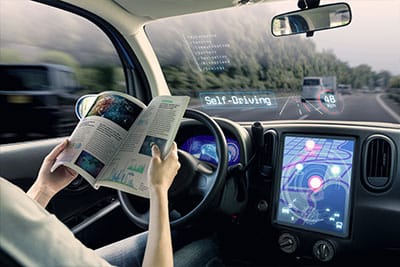How do U.S. consumers feel about self-driving cars?
New research shows that fewer Americans may actually be willing to trust or ride in fully autonomous vehicles.

As companies in both the automotive and technology sectors seem to race to develop autonomous vehicles, West Virginia residents like their counterparts around the nation are watching carefully. Some recent research in fact suggests that they are watching with some element of caution and even potential mistrust.
Consumers unsure about safety of fully autonomous vehicles
The Driver provided information from a Deloitte survey that took a look at consumers’ feeling about autonomous vehicle in multiple countries. In all, more than 22,000 people were surveyed and nearly three quarters of those indicated that they did not feel that vehicles that are fully autonomous are actually safe. Many might find this interesting since it is improved safety that is one of the big drivers of the development of these vehicles.
While consumers worldwide may not currently trust the safety of self-driving cars, they are not completely closed-minded either. Sixty-eight percent of people polled said that they would reconsider their opinion if manufacturers could provide evidence of the vehicles’ safety.
One factor that may well help consumers to trust autonomous vehicle is brand recognition and identity. Over half of the survey respondents said that they are more likely to trust a self-driving car if it is made by a brand they know and trust.
Consumers clear about who they want to make self-driving cars
While self-driving vehicles inherently rely on very intricate technology, it is not the technology giants that consumers want in charge of creating these vehicles. Nearly half of those polled said they would prefer than self-driving cars be produced by automotive manufacturers rather than technology companies. This is compared to a mere 20 percent of respondents who said they would accept such vehicles if built by a technology company.
Features evaluated differently than entire vehicles
While the Deloitte survey highlighted many of consumers’ fears or hesitations about self-driving cars, another study showed that drivers may be more willing to accept certain features that leverage this technology than the complete vehicles.
In the 2017 J.D. Power and Associated Tech Choice Study, drivers rated a high level of not only trust in but interest in some very specific features that are reliant on self-driving technology. The common thread in all of these features was safety.
People even said they would be willing to pay more for a vehicle if it had some of these features included in it. Examples include rear-view camera mirrors, automatically adjusting headlights and emergency steering and braking systems.
Compensation remains an issue after any accident
Whether or not an accident involves a self-driving car, a car with some self-driving technologies or an older vehicle with no such amenities, West Virginia residents deserve justice after a crash. Talking with an attorney in these circumstance is always recommended to help understand what level of compensation may be appropriate and how to seek it.

